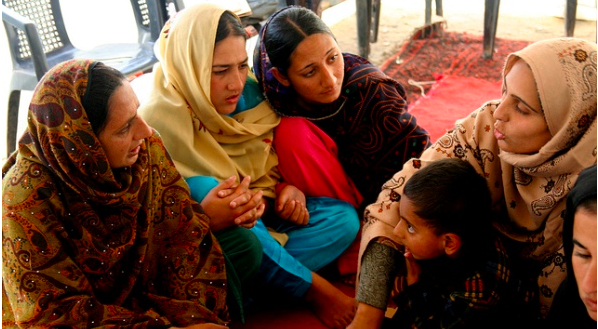The rape of a teenage girl ordered by a village council in ‘revenge’ for a rape allegedly committed by her brother is the latest in a long series of horrific incidents and must lead to urgent reforms, said Amnesty International today.
While 20 people from a village council near Multan have been arrested for ordering the rape, Pakistan’s authorities must end impunity for sexual violence and abolish so-called village councils that prescribe horrific crimes as revenge.
“Pakistan’s authorities must end impunity for sexual violence and crack down on the so-called village councils that prescribe horrific crimes against women, often in revenge for acts committed by others. For far too long, there has been an indulgence of these unspeakably cruel practices,” said Nadia Rahman, Amnesty International’s Pakistan Campaigner.
“No cultural traditions can justify attacks on women. Violence against women is always the opposite of justice. Women’s bodies are not commodities to be bartered for the settling of scores. The perpetrators must face punishments that reflect the gravity of their crime, through fair trials without recourse to the death penalty.”
Pakistan’s failure to protect women against the arbitrary and cruel decisions of so-called village and tribal councils has been the subject of longstanding scrutiny by the United Nations’ human rights bodies.
Earlier this month, the Pakistani government was asked by the UN Human Rights Committee to detail steps it has taken to regulate parallel ‘justice’ systems, such as jirgas. The committee said it had received several reports of discrimination and violence against women at the hands of these parallel systems.
The Pakistani government claimed that they “could not exercise jurisdiction in criminal matters”, adding that “the sole authority in that regard rested in national courts.”
“By allowing these councils to operate, the authorities are complicit in the crimes they order. It is not enough to arrest people after horrific attacks that take place. The authorities have a duty to protect women, prevent further such attacks, and end the fear and stigma that victims suffer,” said Nadia Rahman, Amnesty International’s Pakistan Campaigner.
Background
In 2013, the committee on the Convention for the Elimination of Discrimination Against Women called on the state to “establish a unified judicial system, to eliminate all parallel legal systems and informal dispute resolution mechanisms which discriminate against women and to sensitize the public on the importance of addressing violations of women’s rights through judicial remedies rather than parallel justice systems.
For more information, please contact Sue Montgomery, media relations for Amnesty International Canada, at 613-744-7667 ext. 236 or smontgomery@amnesty.ca













